For years, IBM Watson was considered the gold standard in artificial intelligence, particularly in voice technologies. Its Speech-to-Text (STT) and Text-to-Speech (TTS) services have powered numerous enterprise applications, providing reliability, security, and robust performance. For many large organizations, Watson remains a trusted and legacy choice even today.
However, the AI landscape of 2025 has evolved dramatically. A new generation of specialized, API-first companies is redefining expectations around speed, accuracy, and voice quality. Modern developers are no longer looking for a monolithic “AI in a box.”
Instead, they are creating modular, best-of-breed solutions. This shift has led to a critical question: “What are the best IBM Watson speech alternatives that can give my applications a competitive advantage?”
This guide provides an in-depth review of the leading platforms challenging Watson’s dominance. We will examine the specialists excelling in specific areas and highlight the essential technologies needed to build next-generation voice products.
Table of contents
Top 5 IBM Watson Speech Alternatives in 2025
Here is a detailed analysis of the platforms offering compelling advantages over IBM Watson for various use cases.
| Platform | Best For | Key Differentiator | Ideal User |
| Deepgram | Real-time conversational AI | Industry leader in low-latency streaming | Developers building voice bots and live assistants |
| AssemblyAI | Advanced audio intelligence | Rich models for summarization, sentiment, and more | Developers needing deep audio insights |
| OpenAI Whisper | High transcription accuracy | Handles noisy or complex files with low errors | Teams needing precise recorded audio |
| Google Cloud | Global scale & language support | Superior language coverage | Enterprises with multi-cloud strategies |
| ElevenLabs | Text-to-Speech (TTS) quality | Human-like emotional realism and voice cloning | Teams seeking premium AI voices |
Deepgram
Deepgram focuses on being the fastest Speech-to-Text provider for real-time streaming. It is ideal for applications that involve live conversations, where speed and natural turn-taking are essential.
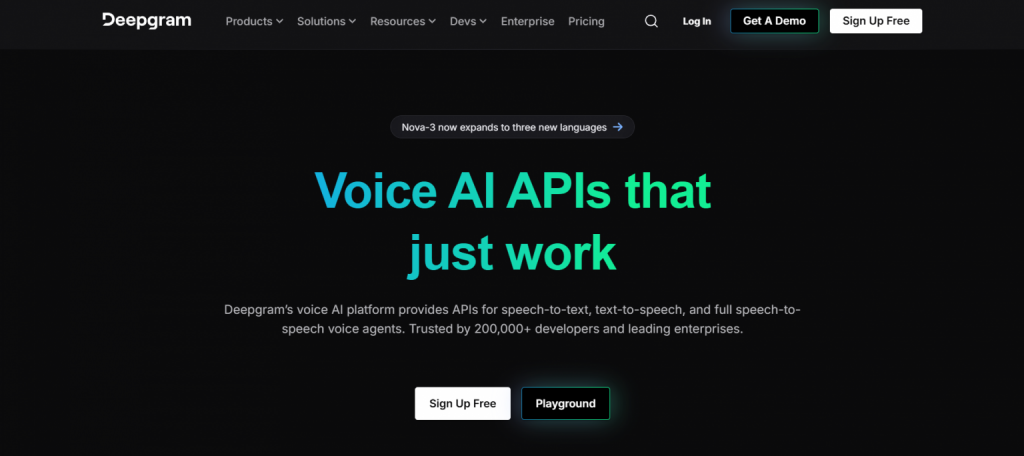
Key Features & Strengths
- Optimized for Speed: Deepgram’s architecture ensures ultra-low latency, making conversations feel natural.
- Custom Model Training: Users can train models on their own vocabulary for highly accurate transcription.
- Real-Time Analytics: Perfect for voice bots, call centers, and live assistants that need instant feedback.
For developers building conversational AI systems, Deepgram is a standout choice among the best IBM Watson speech alternatives in 2025.
Also Read: How To Secure Voice AI And VoIP Communications?
AssemblyAI
AssemblyAI goes beyond basic transcription. It’s perfect for developers who want to extract meaning and insights from audio.
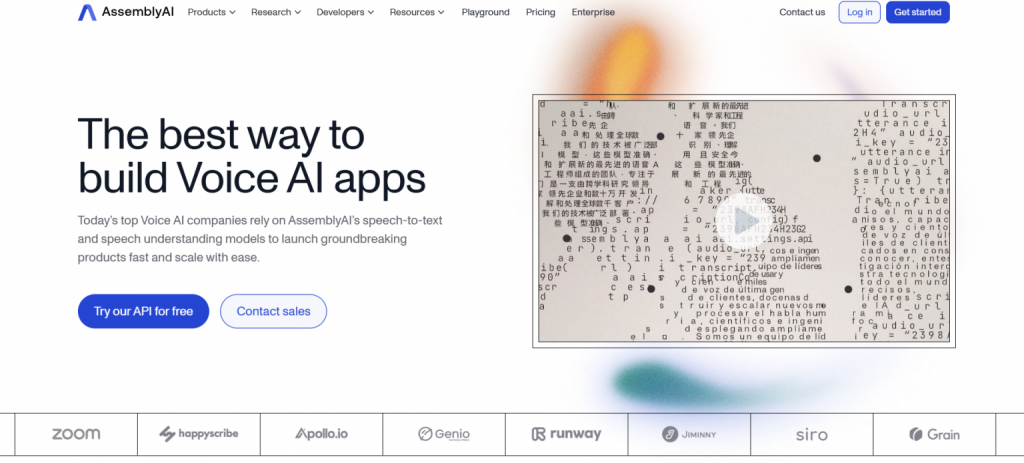
Key Features & Strengths
- Comprehensive AI Models: Summarization, sentiment analysis, topic detection, and PII redaction in one API.
- LeMUR Framework: Analyze audio with natural language prompts, simplifying complex analysis.
- Rich Analytics: Provides actionable insights for business intelligence and reporting.
If understanding context, sentiment, and content is crucial, AssemblyAI is a top contender among the best IBM Watson speech alternatives.
OpenAI Whisper
Whisper is widely recognized for its transcription accuracy, even in challenging audio environments.
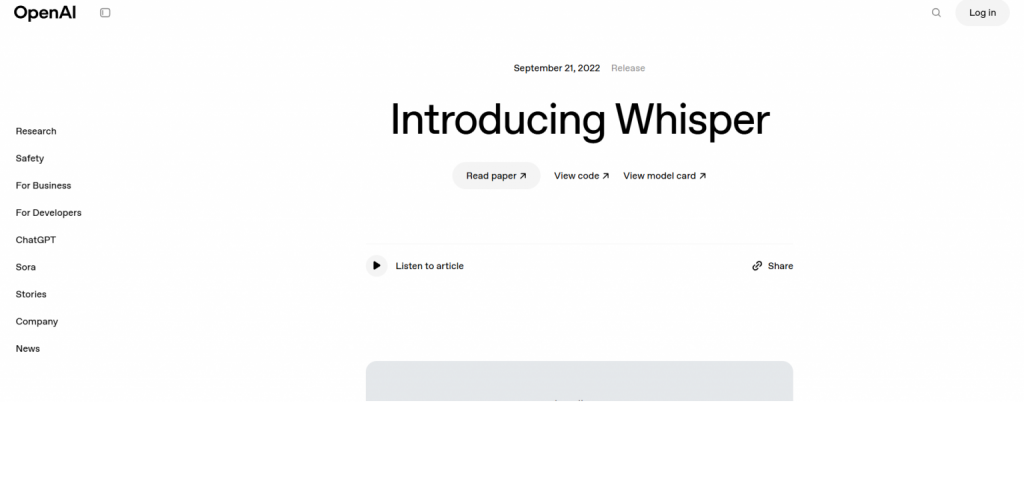
Key Features & Strengths:
- Gold-Standard Accuracy: Minimal Word Error Rate (WER) on diverse and noisy audio.
- Flexible Deployment: Available as both a managed API and open-source model for self-hosting.
- Privacy Control: Self-hosting allows sensitive audio to remain on-premises.
Whisper is often the preferred choice for teams needing high-fidelity transcription, making it a strong option among the best IBM Watson speech alternatives.
Google Cloud Speech-to-Text
Google Cloud offers unmatched global reach and language support, making it an attractive choice for enterprises with an international presence.
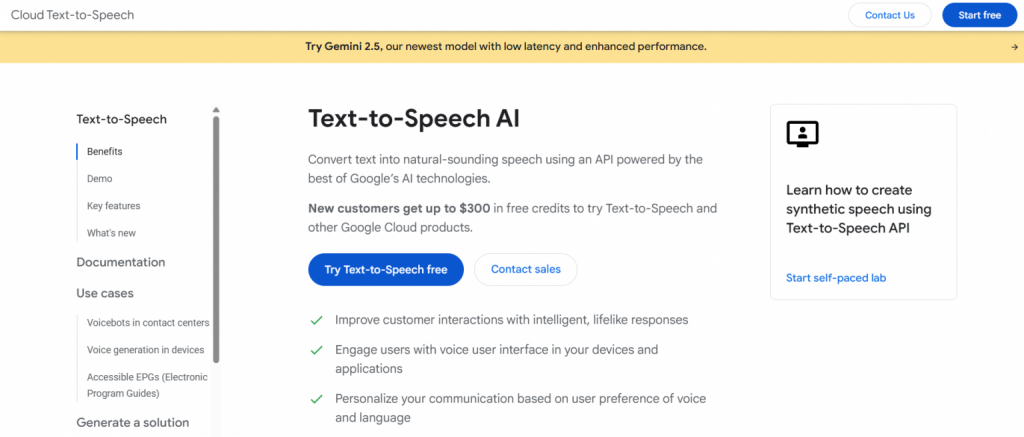
Key Features & Strengths
- Extensive Language Library: Covers more languages and dialects than many competitors.
- Telephony-Specific Models: Optimized for call audio for improved accuracy in customer support and sales.
- Scalable Cloud Infrastructure: Easily integrates with multi-cloud strategies and global operations.
For businesses requiring broad language coverage and scalability, Google Cloud is one of the most reliable best IBM Watson speech alternatives.
Also Read: Elevenlabs.io vs Deepgram.com: Feature by Feature Comparison for AI Voice Agents
ElevenLabs
ElevenLabs is a leading Text-to-Speech provider known for human-like, emotionally expressive voices.
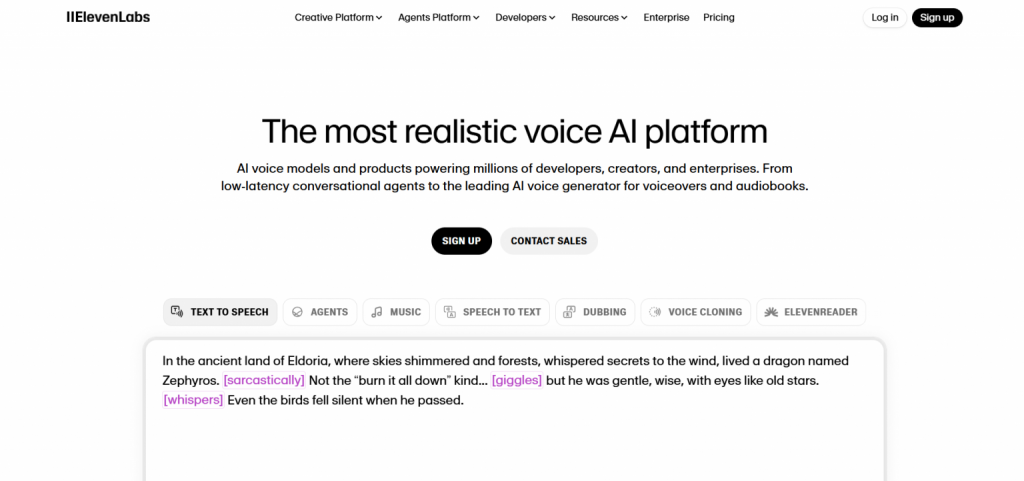
Key Features & Strengths
- High-Fidelity Voice Cloning: Create proprietary brand voices or replicate existing voices with accuracy.
- Natural Intonation: Voices carry emotional nuances and sound realistic in all contexts.
- Generative AI TTS: Produces professional-quality audio for virtual agents, audiobooks, and media.
For teams prioritizing premium voice output, ElevenLabs is a game-changer and one of the best IBM Watson speech alternatives for TTS.
From Legacy Platform to Modern Stack
IBM Watson Speech remains capable and secure. However, the market is now dominated by agile, specialized providers. Developers now have the freedom to select the right tool for each use case, whether it’s low-latency conversational AI, deep audio intelligence, or hyper-realistic voices.
By combining best-in-class components on a robust, model-agnostic foundation like FreJun AI, organizations can build voice products that outperform legacy systems while remaining flexible and future-proof.
Conclusion
While IBM Watson Speech has been a trusted choice for enterprise AI, modern alternatives offer specialized performance in speed, accuracy, and voice realism. Developers can now mix and match the right STT and TTS services to create superior voice products.
The strategy in 2025 is flexibility: choose the best IBM Watson speech alternatives for your needs, integrate them with a reliable voice infrastructure like FreJun AI, and build a next-generation system that is faster, more accurate, and more human than ever.
The freedom to pick specialized solutions ensures your voice applications stay competitive, scalable, and ready for future innovations in AI. By leveraging these modern platforms, businesses can move beyond legacy systems and unlock the full potential of voice technology.
Also Read: How Real Estate Agents Thrive Using a Robust Business Phone System in Bahrain?
Frequently Asked Questions (FAQs)
Specialization is the key reason. If your success depends on a specific metric like real-time responsiveness (Deepgram), deep audio analysis (AssemblyAI), or natural-sounding voices (ElevenLabs), a specialized provider often outperforms a generalist platform.
An STT/TTS API processes audio or text, but a voice infrastructure platform handles the live phone call itself. Platforms like FreJun AI manage connections to the global phone network and stream call audio in real-time to any AI service.
Use a “ground truth” dataset of audio transcribed by humans. Run it through each API and measure Word Error Rate (WER) to identify the most accurate solution for your audio type.
Yes. Modern API-first architectures allow interoperability. FreJun AI can route transcripts from any STT provider to Watsonx.ai or other IBM services for further processing.
